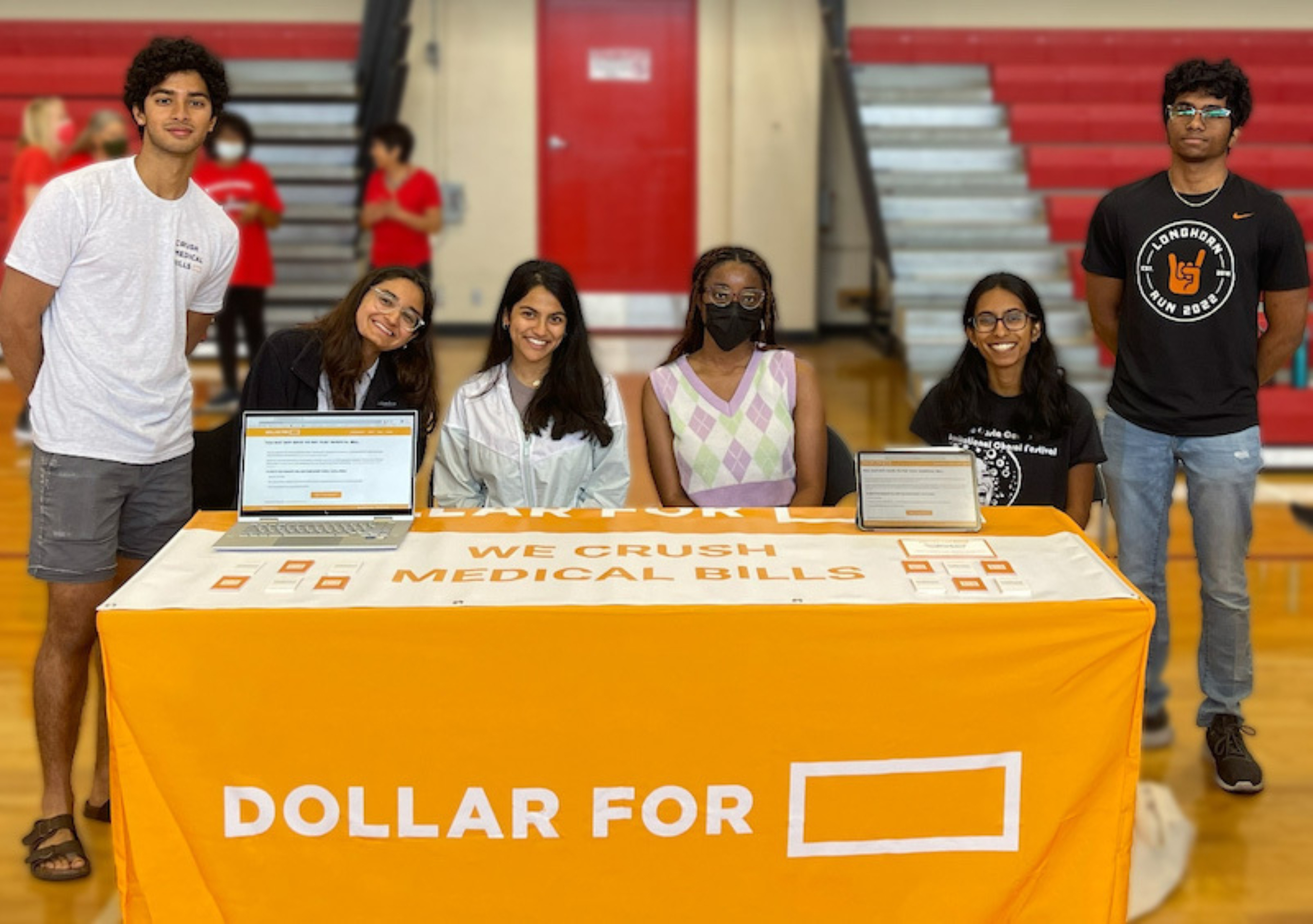The Impact Factory brings together UT students and faculty from across disciplines to create innovative solutions to Central Texans’ pressing health problems.
Across the U.S., around 1 in 10 households have difficulty paying medical bills. Medical debt compounds health issues by causing people to delay care, particularly for communities that already struggle with access to care.
For Scott Spivey Provencio, rising fourth-year medical student at Dell Medical School at The University of Texas at Austin, therein lies a clear opportunity: As one of the 2022 Innovators-in-Residence at The Impact Factory — a joint program of Dell Med and the LBJ School of Public Affairs — Spivey Provencio scaled Dollar For, a national nonprofit that works to help relieve patients from excessive medical bills, to Central Texas.
“Since our local launch in August 2022, we’ve been able to eliminate around $400,000 of hospital bills for Austinites by helping them obtain charity care and navigate unfair billing,” Spivey Provencio says. “Those are dollars that would otherwise be crushing people in medical debt, impacting their social mobility and ability to provide for their families — which in turn creates worse health outcomes.”

Students from the Central Texas chapter of Dollar For, a national nonprofit, table at a community event.
Churning Out Changemakers
The Impact Factory, launched in 2021, offers opportunities for students and faculty from every part of UT’s campus to solve tough problems in health and health care through social innovation and entrepreneurship. More than a dozen portfolio organizations have tackled solutions ranging from healthy food delivery to tax assistance to education funding to loneliness prevention to small business advising and more — all in pursuit of helping people lead healthier lives by impacting the social drivers of health.
“Successful social innovation requires cross-sector expertise — government, health, academia, business, culture and more,” says Michael K. Hole, M.D., MBA, founder and executive director of The Impact Factory. “We’ve built a platform for social entrepreneurship, developing sustainable business models with measurable impact on some of society’s toughest problems — proof that what starts at UT Austin changes the world.”
The organization poses an approach to community impact not often seen on a university campus: Though The Impact Factory is anchored at Dell Med and the LBJ School, its participants include faculty, staff and students from across campus, including undergraduates. Through programs like the Impact Corps, undergraduate and graduate students alike are mentored and empowered to help community organizations — so far, 24 nationally — address challenges while gaining hands-on experience in social innovation.
“The work is broad, but there’s a common denominator around efforts being service-led and tightly focused on local solutions as a model for effecting larger change,” says Laura Rosen, The Impact Factory’s director of programs.
The Impact Factory deploys a five-pillar approach to making community impact: human-centered design, systems integration, cross-sector partnerships, community building and rigorous evaluation. Students, equipped with new skills and mentorship from university- and community-based experts, work alongside client organizations to make sure their work is satisfying clients’ needs and is accessible and informed by the community. Through this approach, students learn how to effectively partner with communities to make positive change.
And for groups like Dollar For — which includes more than 30 UT students working with 50-plus local organizations like People’s Community Clinic and Refugee Services of Texas to help their clients navigate medical debt — those community connections are what make their work possible.
“At Dollar For, our motivation was to do on-the-ground community intervention by which we would make the service more accessible to those who are not on social media or have not heard of it otherwise,” says Spivey Provencio. “This required many different types of outreach. Our partnerships with local nonprofits and community organizations have allowed us to leverage their capacity and access to people who might be more in need.”